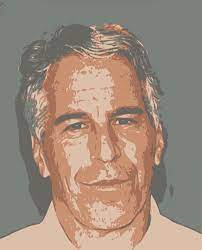THE PRESIDENCY: WHY WOULD ANYBODY WANT THE JOB?

America has always been a country with problems. From the civil war, to the Great Depression, to the recession of 2009, troubling events have always happened in this country. Through all these problems, we, of course, have had presidents overseeing the country. When the world is bad, the easiest solution is to blame the person in charge.
With all the regular pressures of the job, mixed with receiving people’s scorn when economic or social problems arise, it is likely to take a toll on someone’s mental health. Why not look at some examples?
James Madison served as the fourth president of the United States from 1809 to 1817. He is best known for being the Father of the Constitution. He played an important role in the writing and promotion of the constitution. He is also known for ratifying The Federalist Papers, which urged for the constitution to be ratified.
According to research, Madison suffered from Major Depressive Disorder. He was described as unpassionate, with unemotional fatigue, and gloomy often. He was a small and frail man, his depression being characterized by inertia and him wishing to die early, (Lena Greenstein, Mental Illness in the Oval Office, National Alliance of Mental Illness). While he is known for his contributions to the constitution, his biggest criticism stems from how he handled the War of 1812.
He was blamed for the problems the war caused; such as trade ceasing between the U.S. and Europe, and the danger of New England threatening to secede from the Union. While nothing specific was found about how the criticism affected him mentally, one can infer that it did take a toll on his mental health, and likely added to his depression.
Madison was ultimately too cautious to leave any impression on the political landscape. People did not seem to view his time in office as exceptional, although it seems to not have been the worst run. Despite suffering from depression, Madison ultimately was an average president.
Woodrow Wilson served as the 28th president , from 1913 to 1921. He is best known for being a leader in the progressive movement: as he ratified the 19th amendment, allowing women to vote. He also passed laws that prohibited child labor. He was the creator of the League of Nations, and helped draft the Treaty of Versailles.
Wilson suffered from Generalized Anxiety Disorder, something he coped with by overeating. His obesity caused health problems, such as obstructive Sleep Apnea. Like Madison, he suffered from depression, caused by the death of his wife. Some of the biggest problems Wilson faced were the segregated federal government, and the rise of the Klu Klux Klan. He was arrogant, and refused to compromise. He often tried to control congress. Despite this, history books show Wilson as a good president. He was known for making the Democratic party into a progressive party Most of the policies he passed helped make the work industry safer, such as raising wages, and passing the federal reserve act, which helped make the economy more stable.
Lyndon B. Johnson was the 36th president , from 1963 to 1969. He had been vice president under John F. Kennedy, and had been sworn in shortly after Kennedy’s assassination. Johnson, or LBJ, is best known for passing the Civil Rights Act of 1964, and for creating government-run programs like Medicare and Medicaid.
LBJ suffered from bouts of mania and depression, which may have likely been bipolar disorder. He may have also been a narcissist, having been known to use his above-average height as a way of intimidating people. According to a study by John P. Harden, presidents with more narcissistic traits are likely to keep the country in wars longer. LBJ had many narcissistic traits, and while he was not the one who got us into Vietnam, he was responsible for the escalation of it. This made him extremely unpopular, and caused his approval ratings to slip. It made his mental health decline, and caused him to drop out of the 1968 presidential race.
Even though he may have messed-up during the end of his presidency, one cannot deny that he did do a number of good things as president. He was responsible for creating programs that still benefit people to this day, and for playing a big part in the civil rights movement. His escalation of the Vietnam War ultimately had nothing to do with his mental health, but more of his own arrogance.
Richard Nixon served as the 37th president, from 1969 to 1974. Some of his accomplishments include the end the war in Vietnam, and creating the detente with China and the Soviet Union.
Nixon was an addict, he abused alcohol and prescription drugs, including anxiety-meds, which he took to help deal with the stress of Vietnam. As many people are aware, he and his election committee, The Committee to Reelect the President, were responsible for the Watergate scandal, where several members of the committee were caught breaking into the Democratic National Committee headquarters in order to implant bugs. Despite the mental toll the job took, it seems Nixon still enjoyed it enough to resort to crime in order to keep it.
He resigned in 1974, shortly after winning reelection. He was replaced by Gerald Ford. Whether or not it was his mental state that caused him to resort to crime, Nixon was an average, if not decent president. He got the U.S. out of Vietnam, established relations with China, and signed the National Environmental Policy Act into law. He may not have been a great guy, but you have to admit, he was decent at his job.
After doing research, it seems that mental health does not seem to be a big factor that affects a president’s job performance. While not all the president’s have gone down in history as the greatest of all time, none are considered the worst. Well, at least not when it comes to their policies. Goes to show, no matter how mentally-unwell a person is, they can still be good leaders.

Hey, I’m Owen, a senior here at Westfield, and a new writer for the watchdog. I like to read, and watch movies, and I hope to share my opinions on them...









